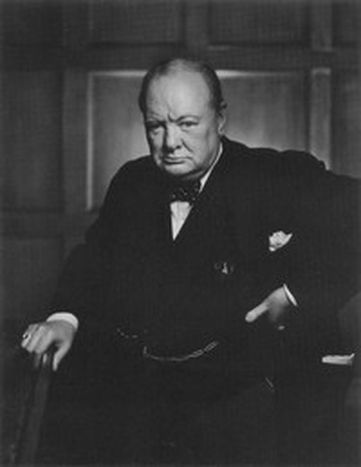
French presidential elections - no aspirin for Europe
Published on
Translation by:
 joanna allan
joanna allan
Are Europeans right to believe that the institutional halt suffered by Europe will be resolved when a new French president is elected between April 22 and May 6?
Berlin, March 2007. Perhaps it was the closeness of the French presidential election race that pushed German chancellor and current EU president Angela Merkel to propose re-launching the constitution's ratification process along with the so-called Berlin Declaration of March 25.
At the same time, according to an Ifop poll from December 2006, 28% of French citizens 'hope that the next president of the Republic will ensure, as a foreign policy priority, that France is the European Union's motor.' This was the second most popular demand amongst the interviewees. As former British Prime Minister Winston Churchill declared in 1946, a 'pan-European union will not be possible if France and Germany don’t drive it.'
However, up until the present, France has always been the motor that has determined the rhythm of Europe's construction. It was France that put the brakes on the creation of a European army in 1954. It was French economist and politician Jacques Delors who helped lay the foundations of the single market, which came into effect in 1993. 17 countries ratified the constitutional treaty, but in 2005 France's rejection of it paralysed the process. It is doubtful that things will change very much with a new French president.
Politics not dependant on future French president
Almost none of the important European issues will depend on the results of the elections in France. The European budget is adopted every six years and the latest budgetary framework relevant from 2007 until 2013 has just come into action: whoever governs France during this period will not be able to implement changes in the amount and distribution of community funds.
Concerning the widening of the EU to Turkey, although the centrist candidate Bayrou and conservative Sarkozy have declared themselves against it (ike the far-right Le Pen), the reality is that the Turks are far from reaching membership criteria. Talk is that it will be many years before they achieve this. This has possibly motivated Socialist candidate Ségolène Royal to declare herself in favour of Turkey's entrance if it fulfils EU prerequisites. It's a show for the gallery, because during the next five-year mandate in France, no-one will find themselves obliged to call for a referendum that obliges the Gallic constitution to every new EU member.
Finally, the Lisbon Agenda – the most modern technology and knowledge society in the world created for Europe - will continue in deadlock as always. For example,with the delay of the European Galileo Satellite Navigation programme. The participating states are not coming to an agreement over the businesses that will carry out the work, as they want the money made to return to their countries by way of contracts. On March 15, Jacques Barrot, vice-president of the European Commission, warned that the 'delays are putting the constellation of satellites known as the European GPS at risk. Germany and the UK haven’t even contributed the money that they had promised.'
This dynamic is repeated with respect to Germany and France, who have been fighting for months due to the management of the European Aeronautic Defence and Space Company (EADS). In this giant European aeronautic, Daimler-Chrysler's Germans want to share out dividends. But the French state, also a shareholder of the consortium, totally refuses the cutting of 10, 000 jobs. Co=operation is not in vogue, and none of the French presidential candidates have contributed any proposals for a solution.
Mini- or micro-treaty?
Problems concerning the decision-making procedure remain. In an EU of 27 members, the obligation to take the most important decisions by way of consensus or majority approval is paralysing.
Sarkozy proposes a 'mini-treaty' that focusses on the aspects that the French voters had not rejected during the referendum campaign. Gérard Honesta, vice-president of the European Parliament and a French member of the Greens, believes that this mini-treaty could be turned into a 'micro-treaty with few rules. The states will not agree over what to take out of or leave in the current text. It will balance out very small.' Royal and Merkel are talking about organising another inter-governmental conference in order to develop a new, more concise text.
A new treaty with less content could spread the disappointment amongst the populations of the 17 European countries that would perpetuate latent Euroboredom. This is demonstrated by the low rates of electoral participation in the community elections. Another sign that invites pessimism is Merkel’s so-called 'Berlin Declaration'. It began with opposition from countries such as Poland and the Czech Republic (that have yet to ratify the constitutional treaty), to the mentioning of the term 'constitution.' They don’t seem very enthusiastic about continuing with the process.
Translated from Las elecciones francesas no son la aspirina para Europa


